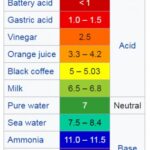Comparing strings in Java is a common task, but it’s crucial to use the correct method to ensure accurate results. This guide provides a comprehensive overview of how to compare strings in Java, explaining the differences between various approaches and highlighting best practices.
Understanding String Comparison in Java
Java offers several ways to compare strings: using equals(), equalsIgnoreCase(), and compareTo(). Each method serves a different purpose and provides distinct results. Choosing the right method depends on the specific comparison requirements.
Using equals() for Exact Matching
The equals() method compares two strings character by character, considering case sensitivity. It returns true if the strings have the same sequence of characters and false otherwise.
public class StringComparison {
public static void main(String[] args) {
String str1 = "hello";
String str2 = "hello";
String str3 = "Hello";
System.out.println(str1.equals(str2)); // Output: true
System.out.println(str1.equals(str3)); // Output: false
}
} String equals example
String equals example
Using equalsIgnoreCase() for Case-Insensitive Comparison
The equalsIgnoreCase() method, as the name suggests, compares two strings without considering case. It returns true if the strings have the same sequence of characters, ignoring case differences, and false otherwise.
public class StringComparison {
public static void main(String[] args) {
String str1 = "hello";
String str3 = "Hello";
System.out.println(str1.equalsIgnoreCase(str3)); // Output: true
}
}Using compareTo() for Lexicographical Comparison
The compareTo() method compares two strings lexicographically (alphabetically). It returns:
- 0 if the strings are equal.
- A negative value if the first string comes before the second string in lexicographical order.
- A positive value if the first string comes after the second string in lexicographical order.
public class StringComparison {
public static void main(String[] args) {
String str1 = "apple";
String str2 = "banana";
String str3 = "apple";
System.out.println(str1.compareTo(str2)); // Output: negative value
System.out.println(str2.compareTo(str1)); // Output: positive value
System.out.println(str1.compareTo(str3)); // Output: 0
}
}Avoiding Common Pitfalls: Why Not to Use ==
Using the == operator to compare strings in Java can lead to unexpected results. The == operator compares object references, not the actual string content. Strings in Java are objects, and creating two strings with the same content might result in two different objects in memory.
public class StringComparison {
public static void main(String[] args) {
String str1 = new String("hello");
String str2 = new String("hello");
System.out.println(str1 == str2); // Output: false (comparing references)
System.out.println(str1.equals(str2)); // Output: true (comparing content)
}
}While == might sometimes return true due to string pool optimization (where Java reuses existing string objects), relying on this behavior is not recommended. Always use equals() for reliable string content comparison.
Conclusion
Choosing the correct string comparison method in Java is essential for writing accurate and reliable code. Use equals() for exact matches, equalsIgnoreCase() for case-insensitive comparisons, and compareTo() for lexicographical ordering. Avoid using == to compare string content, as it compares object references and can lead to unexpected outcomes. By understanding these principles, you can ensure your string comparisons always produce the desired results.
